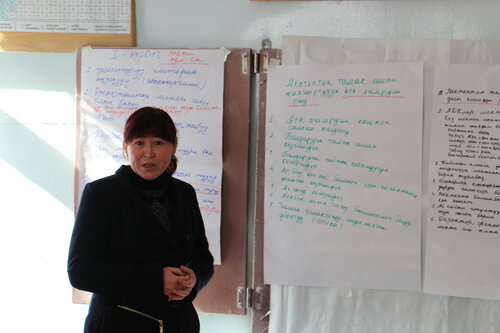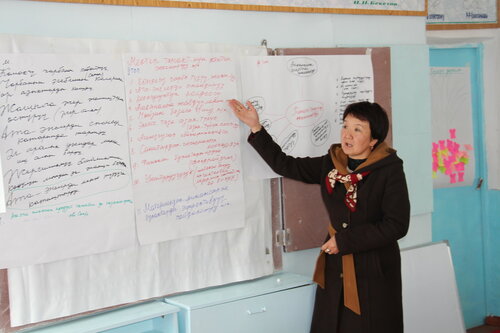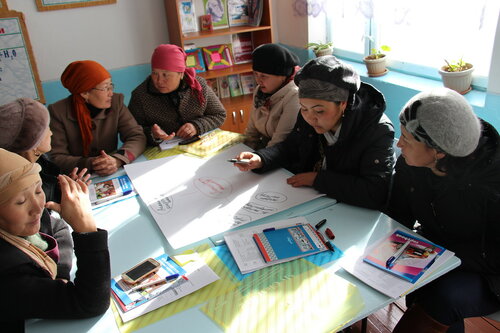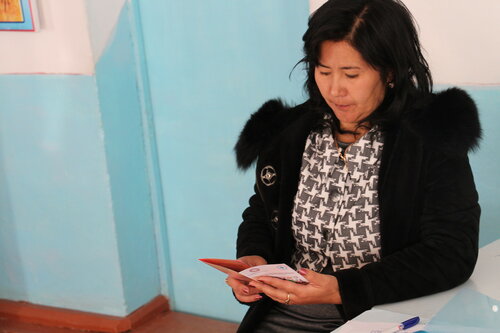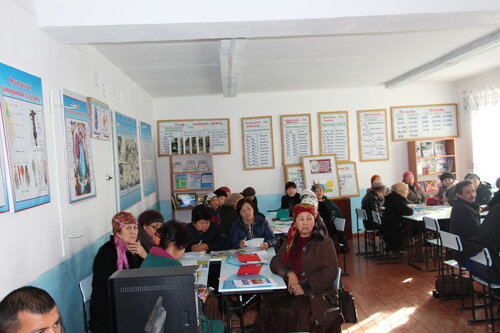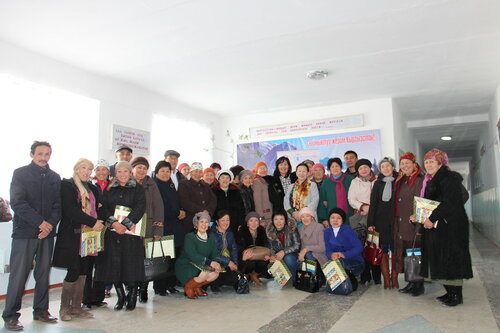«Mobilization of local communities for advancing national policy on the school meal program in the Kyrgyz Republic» under the UN World Food Program «School Meals Optimization in the Kyrgyz Republic»
November 14, 2015, 06:00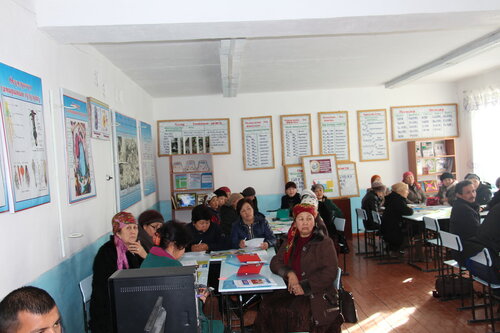
Trainings are currently being held in Jalal-Abad Oblast for the UN World Food Program’s “School Meals Optimization in the Kyrgyz Republic.” They are directed towards bettering school meals for students in the primary grades. The “Initiative of Roza Otunbayeva” International Public Foundation is one of the partners of the UN World Food Program for this program.
The goal of the trainings is the implementation of the School Meal Optimization program, and within that, to assist in organizing school meals for the Kyrgyz Republic pilot schools and to better inform local communities (independent management agencies, parents, and activists) about the increase in transparency of buying and providing food products for school meals.
The trainings were held in Terek-Sai Village in Chatkal Rayon. More than 35 people attend each training.
From November 10th-13th trainings will be held in Terek Sai, Avletim, Uch Korgon and Masy Villages and in Kerben City. As a reminder: these trainings were held previously in Chui, Issyk-Kul, Osh and Batken Oblasts.
The program “School Meals Optimization in Kyrgyz Republic” gives the opportunity to create the conditions for work that is aimed at directly improving school meals. The expected outcome is the establishment of positive public attitudes toward the national policy of improved school meals. Within that: raising responsibility of parents in organizing school meals; raising responsibility of local governments to create better conditions and infrastructure in school cafeterias; increasing the obligations of parents and school administrations for improving the effectiveness of school meal operations and organizing sustenance farmers near the school. Local self-government agencies, school administrators, regional education offices, parent committees, counselors, local community leaders, local advisors and village health committees, and administrators and parents of other non-pilot schools (who don’t serve hot meals) are attending the trainings.
